11 start with L start with L
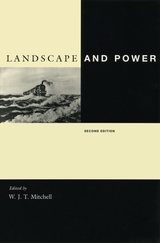
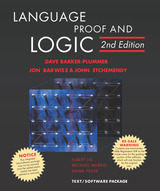
Language Proof and Logic is available as a physical book with the software included and as a downloadable package of software plus the book in PDF format. The all-electronic version is available from Openproof at gradegrinder.net.
The textbook/software package covers first-order language in a method appropriate for first and second courses in logic. An on-line grading services instantly grades solutions to hundred of computer exercises. It is designed to be used by philosophy instructors teaching a logic course to undergraduates in philosophy, computer science, mathematics, and linguistics.
Introductory material is presented in a systematic and accessible fashion. Advanced chapters include proofs of soundness and completeness for propositional and predicate logic, as well as an accessible sketch of Godel's first incompleteness theorem. The book is appropriate for a wide range of courses, from first logic courses for undergraduates (philosophy, mathematics, and computer science) to a first graduate logic course.
The software package includes four programs:
Tarski's World, a new version of the popular program that teaches the basic first-order language and its semantics;
Fitch, a natural deduction proof environment for giving and checking first-order proofs;
Boole, a program that facilitates the construction and checking of truth tables and related notions (tautology, tautological consequence, etc.);
Submit, a program that allows students to submit exercises done with the above programs to the Grade Grinder, the automatic grading service.
Grade reports are returned to the student and, if requested, to the student's instructor, eliminating the need for tedious checking of homework. All programs are available for Windows and Macintosh systems. Instructors do not need to use the programs themselves in order to be able to take advantage of their pedagogical value. More about the software can be found at gradegrinder.net.
The price of a new text/software package includes one Registration ID, which must be used each time work is submitted to the grading service. Once activated, the Registration ID is not transferable.
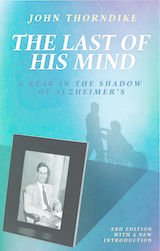

Planned and designed by a leading Tokyo lawyer and several American practitioners and scholars, Law and Investment in Japan introduces both Japanese law and the strategic issues that arise in cross-border transactions. Centered around the details of an actual joint venture between the U.S. and Japan, the book combines materials from the transaction itself with cases, statutes, and background data.
This new second edition reflects recent changes in the law and new directions in scholarly research.
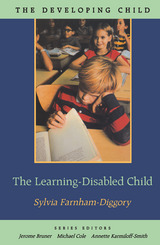
Who is the learning-disabled child? As theories multiply and research accumulates, this pressing question persists, leaving parents and educators and, particularly, students at a loss. The Learning-Disabled Child does much toward providing an answer. A broad-based account of what is currently known and done about learning disabilities, the book gets at the roots of this perplexing problem—in the law, in the school system, and in the child—and offers a new outlook for its treatment.
Since the 1970s, millions of children have been misclassified by public schools as learning-disabled, while many others with true learning disabilities go unidentified and unhelped, as case material presented here makes poignantly clear. Over the same period, research on the nature of learning disabilities, based on samples of misclassified children, has yielded a cloudy and confusing picture. Drawing on her own background in cognitive, developmental, and abnormal psychology, as well as her research into reading and dyslexia, Sylvia Farnham-Diggory cuts through the confusion surrounding learning disabilities. She describes advanced research and clinical data that elucidate handicaps in reading, writing, spelling, drawing, calculation, remembering, and problem-solving. In addition, she outlines a straightforward assessment procedure that would reduce the misclassification of learning-disabled children and, if adopted by schools and private diagnostic services, would save the nation billions of misspent dollars.
Prescriptive as well as descriptive, The Learning-Disabled Child offers invaluable advice to parents seeking the best methods of diagnostic evaluation, and to teachers in search of the most effective means of helping these children. Far-reaching in its scope and firmly practical in its orientation, the book will prove instrumental in the identification, understanding, and treatment of learning disabilities.
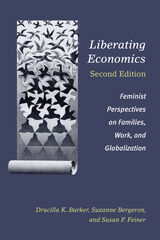
With all new and updated chapters, the second edition of Liberating Economics examines recent trends in inequality, global indebtedness, crises of care, labor precarity, and climate change. Taking an interdisciplinary and intersectional feminist approach, the new edition places even more emphasis on the ways that gender, race, class, sexuality, and nationality shape the economy. It also highlights the centrality of social reproduction in economic systems and makes connections between the economic circumstances of women in global North and global South. Throughout, the authors reject the idea that there is no alternative to our current neoliberal market economy and offer alternative ways of thinking about and organizing economic systems in order to achieve gender-equitable outcomes.
Written in an accessible and engaging style, this book will be of interest to students and scholars across a range of fields, policymakers, and any reader interested in creating just futures.

An authoritative introduction to bioethics, Life Choices examines a comprehensive range of ethical questions and brings together some of the most probing and instructive essays published in the field.
Some of the articles are classics in the literature of bioethics, while others address current issues. Topics include moral decision making, abortion, euthanasia and assisted suicide, life-sustaining technologies, organ transplantation, reproductive technologies, and the allocation of health care resources.
This second edition features new sections on the goals and allocation of medicine and on the cloning of human beings. It also includes new articles on genetics, the duty to die, and ethical theory.
Written by the foremost authorities in bioethics, Life Choices provides a comprehensive introduction to the field. Instructors who have used the first edition as a text will welcome this new, updated edition. Scholars and health care practitioners will find it useful as a valuable reference on a wide range of bioethical issues.

Praised as "one of those rare scientific books that can be read both for pleasure and instruction" when it was first published, The Life of Yeasts now appears in a new edition incorporating the exciting developments of the last decade. Nowhere else is there an introduction to this complex group of organisms that is as succinct, clear, and useful. Reviewing the first edition in Nature, A. H. Cook welcomed it as a "simple but wide-ranging account of a field which for various reasons has hitherto mostly been described only in a few specialized texts or in many respects only piecemeal in original publications."
This book is written for the nonspecialist who wishes to understand the yeasts, but not necessarily to become an expert on them. The new edition covers recent and major advances in the morphology, physiology, genetics, and ecology of these organisms, which have long been important in commerce and medicine and are ever more studied in the laboratory as prototypical eukaryotes.
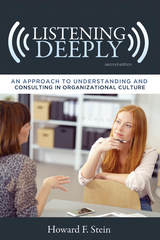
This new edition of Listening Deeply updates historical context, theory, method, and organizational stories. A psychodynamic orientation informs much of the book and the language Stein uses is direct. His lessons are useful to the manager in any kind of organization, as well as practitioners of psychology, sociology, business management, medicine, and education.
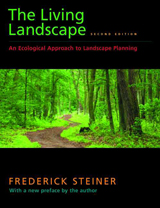
The Living Landscape offers
• a systematic, highly practical approach to landscape planning that maximizes ecological objectives, community service, and citizen participation
• more than 20 challenging case studies that demonstrate how problems were met and overcome, from rural America to large cities
• scores of checklists and step-by-step guides
• hands-on help with practical zoning, land use, and regulatory issues
• coverage of major advances in GIS technology and global sustainability standards
• more than 150 illustrations.
As Steiner emphasizes throughout this book, all of us have a responsibility to the Earth and to our fellow residents on this planet to plan with vision. We are merely visiting this planet, he notes; we should leave good impressions.
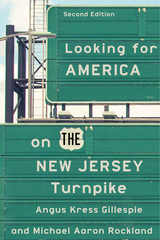
When Angus Gillespie and Michael Rockland wrote Looking for America on the New Jersey Turnpike in 1989, they simply wanted to express their fascination with a road that many commuters regarded with annoyance or indifference. Little did they expect that it would be hailed as a classic, listed by the state library alongside works by Whitman and Fitzgerald as one of the ten best books ever written about New Jersey or by a New Jerseyan.
Now Looking for America on the New Jersey Turnpike is back in a special updated and expanded edition, examining how this great American motorway has changed over the past thirty-five years. You’ll learn how the turnpike has become an icon inspiring singers and poets. And you’ll meet the many people it has affected, including the homeowners displaced by its construction, the highway patrol and toll-takers who work on it, and the drivers who speed down its lanes every day.
READERS
Browse our collection.
PUBLISHERS
See BiblioVault's publisher services.
STUDENT SERVICES
Files for college accessibility offices.
UChicago Accessibility Resources
home | accessibility | search | about | contact us
BiblioVault ® 2001 - 2024
The University of Chicago Press









